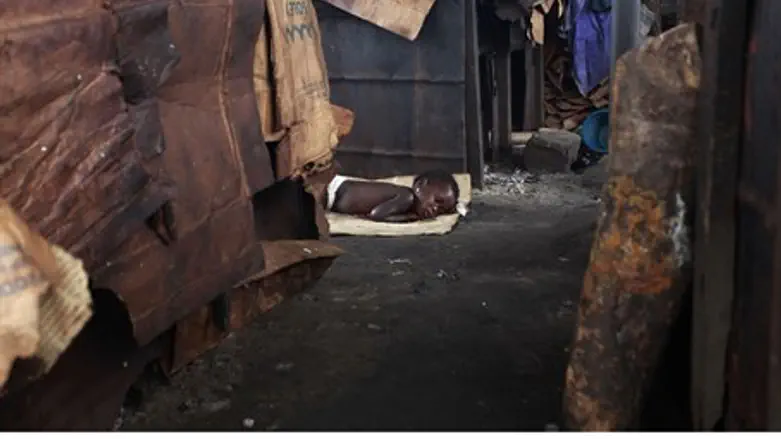
The government of the western African state of Guinea has confirmed that the lethal Ebola virus has spread to its capital city of Conakry, home to two million residents.
A recent outbreak of the deadly disease has already claimed 62 lives in rural areas of the impoverished African nation; suspected cases in the capital had until now proven negative, while cases in neighboring Liberia and Sierra Leone remain unconfirmed, reports BBC.
This week, Guinean Health Minister Remy Lamah traced the path by which Ebola had infiltrated the capital. A man died from hemorrhagic fever after traveling to a town in central Guinea, far from the identified outbreaks in the south-east.
Four of his brothers who attended his funeral showed the same symptoms on returning to Conakry from his funeral. They are currently in an isolation ward, and the rest of his family is quarantined as well, reported Lamah.
The Guinea Health Ministry banned the sale of fruit bats earlier this week, given that the animals, considered a local delicacy, are also suspected of being carriers of the disease.
A Canadian man who returned from a trip to Liberia displayed symptoms of Ebola as reported on Tuesday, only to be tested negative of all forms of Ebola later in the day.
Death rate up to 90%
The deadly virus, which is spread by close contact and has a fatality rate of up to 90%, was discovered in 1976. The disease causes a severe hemorrhagic fever, inducing vomiting, diarrhea, as well as internal and external bleeding. No vaccine for the virus exists yet.
"Ebola virus is one of the deadliest killers known," reported Ben Neuman, a virologist at the British University of Reading. "If this virus spread between people more easily, it would probably be more deadly than the black plague. Fortunately, up to this point, it has not."
There has not been much scientific incentive in developing a cure, largely because of the financial loss the expensive research process for a disease largely limited to impoverished rural areas of Africa would cause.
The US government funds some research, largely out of concern the virus could be developed as a bio-terrorism weapon.